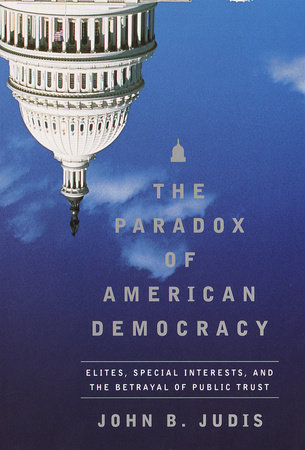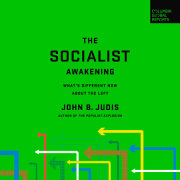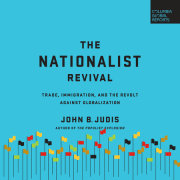IntroductionAmerica has experienced a steady growth of industry and invention over this century -- not interrupted even by the Great Depression. Today, our country is awash in new technology -- from the World Wide Web to gene splicing -- and abounds in brilliant entrepreneurs, such as Microsoft's Bill Gates, TCI's John Malone, and Federal Express's Frederick W. Smith. Information technology has transformed how Americans work and where they buy and sell their goods and services. Within a decade, innovations in biotechnology may utterly change agriculture and medicine. The burgeoning American trade deficit, once a mark of weakness, now symbolizes the nation's status as the consumer of last resort for other nations mired in recession. In the wake of the Soviet Union's collapse, the United States has also achieved unchallenged military supremacy; it has no credible adversaries. And American culture -- from movies to teenage fashion -- dominates the world market. In this sense, the American century that Henry Luce predicted in 1941 has truly arrived. But while we have hurtled forward in technology and enjoy global hegemony in cruise missiles and designer jeans, we have not made similar progress in our political institutions. As we look out upon a new century, American politics seems in far worse shape than it did at the last turn of the century.
There are telling signs that something is wrong with America's political system. Voter turnout in the 1996 presidential contest was 48.9 percent, the lowest since 1924, and turnout in the 1998 Congressional races was the lowest since 1942, a wartime election. Perhaps more important, there is a noticeable lack of popular political activity in the country, except, perhaps, for the Christian right in the South and the environmental movement in the West. During the last decade, formidable grassroots organizations have dissolved or been transformed into letterhead groups. The labor movement, once a bulwark of popular power, has continued to lose its hold over America's working class. Political parties have become subordinated to political consultants, media experts, pollsters, and public relations flacks, none of whom are accountable to voters. The political system has become ruled by large contributors, who through loopholes in the porous campaign laws hold the balance of power in elections and popular referenda.
While activity outside Washington has atrophied, activity on or around Washington's K Street has spread and expanded. In 1997, 11,500 lobbyists spent $1.26 billion lobbying Congress -- or $2.4 million for each member. There are thousands of lobbying organizations in Washington representing every conceivable interest group, from Alaska crab fishermen and Armenian-Americans (two organizations) to mink exporters and motorcyclists. There are also hundreds of political organizations ranging from the Defenders of Wildlife to Handgun Control to the Conservative Caucus. Very few of these organizations have real members. Instead, they are run by Washington staff and funded by direct mail, and they survive by attempting to capture public attention for single issues. They defy the old-fashioned view that politics rests ultimately on a shared view of the national interest. Far from deepening citizen involvement in politics, the proliferation of these Washington organizations discourages it by making politics the exclusive province of paid hacks and single-issue fanatics.
Congress appears incapable of passing significant reform legislation. In 1993 and 1994, Congress couldn't produce any bill aimed at reducing the growing ranks of Americans who have no health insurance. After the 1996 election, when there was widespread public support for campaign reform, Congress could not even pass the most perfunctory measure. During the 1997-98 session, the only large-scale legislation adopted was a $218 billion transportation bill that, while needed to modernize crumbling infrastructure, was heavily larded with pork-barrel projects. Even the onset of large budget surpluses, which would allow generous expenditures in education and healthcare, failed to shake Congress's torpor. Much of Congress's time has been consumed by such "hot button" issues as "partial birth" abortion, gay rights in the military, and funding for UN birth control programs and for the National Endowment for the Arts -- issues that are of very little concern to most Americans. Serious national issues, such as military intervention in the Balkans, have been debated in a spirit of the most narrow partisanship. Worse still, hearings and investigations into scandals -- from the imbroglio over Clarence Thomas's Supreme Court nomination in 1991 to the charges of perjury against President Clinton in 1998 -- have overshadowed any consideration of the country's future. These scandals have generally not involved the flagrant misuse of government funds or an attempt to subvert the Constitution, but instead petty corruption and inappropriate personal behavior. They have been triggered by partisan struggles for power inside Washington, and arouse only passing or prurient interest outside of Washington. They reached a pinnacle of absurdity in 1999 with the impeachment trial of Clinton -- an event driven by partisan fanaticism and opposed by the general public.
The president and the executive branch are equally paralyzed, and not simply by the opposition in Congress. Domestic politics is dominated by public opinion polling. After the defeat of its health care initiative, the Clinton administration limited itself to what campaign consultant Dick Morris called "bite-size programs" that were designed to win popular favor, but even if adopted by Congress had little chance of solving the problems they were intended to address. Foreign policy decisions lacked a widely accepted and understood rationale. Instead, intermittent decisions to use American forces in the Balkans or Middle East appeared to reflect not just interests and ideals, but also transient political pressures and passing diplomatic fancies. And they were conducted in an atmosphere of public uncertainty and partisan bickering.
In the past, the existence of a powerful political establishment could make up for the shortcomings of public institutions and could work to overcome the absence of shared national goals, but there has been a disturbing decline in the quality of the American leadership class -- the former public officials, investment bankers, CEOs, and academics who are periodically summoned to lend their wisdom and experience to the government and the country. Former officials who used to provide dispassionate guidance on difficult foreign or domestic policy issues have become lobbyists and consultants for American and foreign businesses. Former Secretaries of State make provocative public statements defending China while not revealing their own financial stake in the current Chinese government. Former senators call for the privatization of Social Security without revealing that they are on the boards of directors of securities firms that would stand to benefit mightily from such a change. Former presidential candidates lobby for businesses that, as politicians, they had denounced only a year before. Bankers, business leaders, and corporate lawyers who, in past generations, might have been driven to devote part of their time to public service and to the greater good confine their public activity to lobbying on behalf of their own firm or industry. And academics and policy intellectuals who brought a spirit of scientific objectivity and disinterest to political deliberations lend their name and expertise to think tanks and policy groups that are dedicated to promoting the narrowest interests of business contributors.
Together, the irresponsibility of the nation's elites, the power and proliferation of special interest groups, and the paralysis of Congress and the executive have contributed to a corrosive public cynicism. Americans, of course, have often been skeptical about government and politicians, but over the last decades, this skepticism has hardened. Political scientist Hugh Heclo writes, "A long-term downward trend in political trust reflects not simply a skepticism toward authority but a much more negative cynicism toward anything that happens in politics. To doubt and question public authority is a time-honored American tradition. Always to expect the worst is not." Put this cynicism together with a certain complacency born of temporarily good times and one has the ingredients for a massive withdrawal from public activity and vital public questions.
These developments suggest that even as the Dow-Jones stock index exceeds a record 10,000, our political system is faltering, and faltering in a way that might eventually undermine our progress as a nation. Periods of prosperity should provide welcome opportunities to strengthen our institutions to prepare for future adversity, but our political institutions make it impossible to adopt far-reaching policies, particularly if they threaten vested interests. Like holiday travelers, we are prepared for the pleasures of the next stop, but are completely ill-equipped to handle even the smallest crisis, let alone a severe economic downturn or a war. How did this happen, and why, and what can be done about it? These are the questions that this book will attempt to answer.
Copyright © 2000 by John B. Judis. All rights reserved. No part of this excerpt may be reproduced or reprinted without permission in writing from the publisher.







